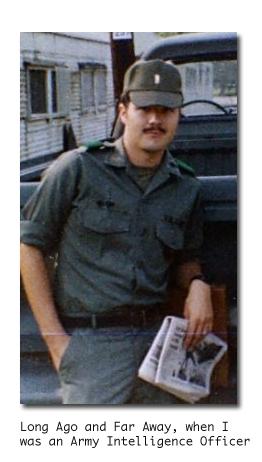The Torturer's Dilemma
There has been much talk lately about torture -- with the defenders asserting that, moral objections aside, it was effective and therefore justified. The "ticking timebomb" is held up as the exemplary scenario. I'm afraid this is illogical, given the ultimate dynamic of torture.
 If I am torturing you to elicit information, the understanding between us is that I will keep torturing you until I get "the truth".
If I am torturing you to elicit information, the understanding between us is that I will keep torturing you until I get "the truth".
If the torture is not just to torment you for your evil deeds, demonstrate my dominance over you or coerce a confession (the areas where torture is most effective), we must assume that I don't already know the truth -- so when you tell me something, how will I know whether it is true?
The only filters I have for that are my own expectations, so if you tell me something that is inconsistent with my assumptions, I will conclude you are lying and continue to torture you until you tell me something I will believe. If, for example, the objective truth is that you are innocent, but I am determined to extract information an innocent man would not know, you will have to carefully read my questions and my responses to your answers for clues as to what I want to hear, so you can tell me something that will make the torture stop.
In fact, if you can suss out the sorts of things I'm looking for, you have a powerful incentive to make things up that you think will please me. I may eventually run the story down and find out it was a lie; but you will have succeeded in wasting my time and bought yourself a respite from the pain. Sure, I'll torture you again, but perhaps you can arrange another pause by figuring out another lie I want to hear.
To address the popular, if improbable timebomb scenario: If your timebomb is ticking, and you tell me something about it, given the short time line inherent in this situation, how can I possibly tell the difference between a true statement and a lie intended to run out the clock until your bomb explodes? I can't - so I just have to hope that if you talk at all, what you tell me is not only true, but sounds true.
Sometimes what you say under torture is true, but it may also be a lie or just enough truth to make me stop hurting you for a while. However, it is always run through the prism of my sense of reality, and that is the fundamental flaw. That flaw is not reduced by those occasions when a true thing the victim says, and the torturer's prejudices, align.
Torture evidence is not always false, but it is always unreliable.
One might also argue that your statements under torture can be checked and either corroborated or refuted. Sometimes this is possible from other sources, and sometimes it is not -- but it is dangerously tempting, once I have accepted torture as a valid intelligence gathering tool, to use the torture of a new victim to corroborate the information of an old one, thereby constructing an elaborate and multi-layered work of fiction.
It is inevitable that my prejudices will be reflected in your confessions.
The art of intelligence analysis is to bring together information from any and all sources to create a consistent narrative that is as close to reality as possible. The danger is that I will assemble the pieces incorrectly, come to erroneous conclusions and construct a false narrative. This danger is exacerbated when, through torture, I am dictating the evidence to match my preferred narrative.
Torture will tend to reinforce existing ideas, and suppress contrary information. It is a road to self-deception which is the opposite of effective intelligence - however since it feeds the ego by justifying one's beliefs, it can be dangerously seductive.
That is the torturer's dilemma and it is inescapable.
Walter Nelson
PS: I was not an interrogator. I was a collector and analyst. For me, the timeliness, relevance and accuracy of information was paramount. While in this essay, I speak of the torturer in the first person, my perspective is that of someone who was charged with evaluating the value of information available to me, from what ever source.
PPS: I have not addressed the moral issues involved, but on these I feel quite strongly as well. Torture is reprehensible and our use of it severely undermines our standing in the world and our effectiveness in the perpetual battle for "hearts and minds". Its value as a recruiting tool for our enemies far outweighs its dubious tactical value. Further, it puts our people at greater risk in dangerous places. However, in my essay, I wanted to focus on the central tenant those who argue that, morality aside, it works. No, it doesn't, and we mustn't do it.
